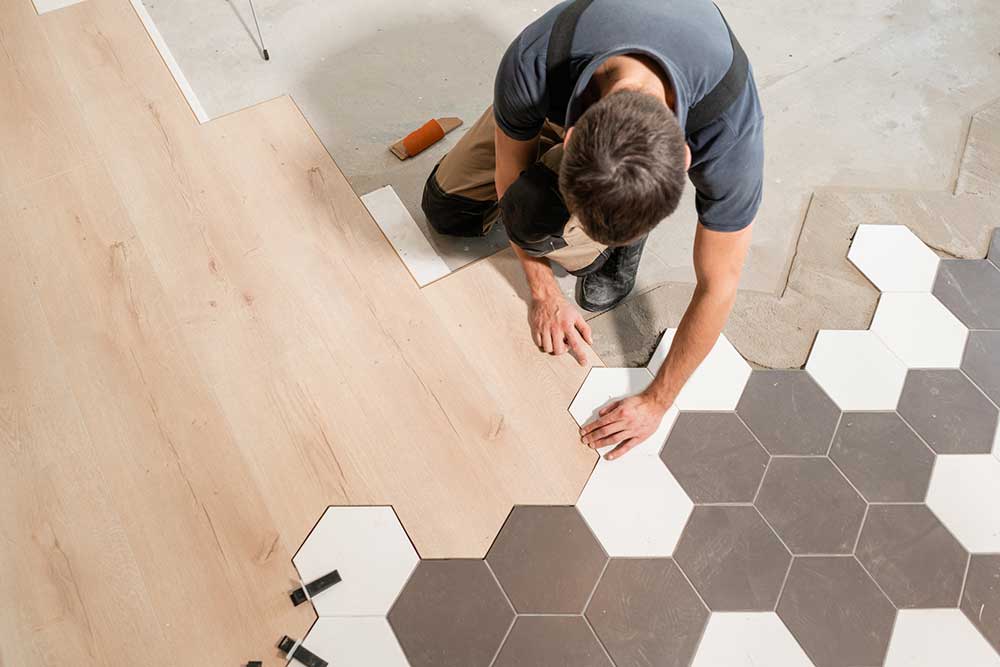
Floor Layer
Careers Explorer:
Overview
Floor Layers are trained in sub-floor preparations and laying floor coverings.
You’ll use and understand technical drawings and specifications to lay floors in a wide range of materials including carpets, vinyl, linoleum, rubber, laminate, wood flooring and resin.
You’ll work across a range of commercial and domestic settings from people’s homes and new-build construction sites to schools, shops, hospitals and airports.
Types of floor coverings vary from basic carpets and lino to designer finishes, such as mosaic, so you could be working with a wide range of materials and designs.

Top 5 Tasks
- Measure up floor space and work out the materials needed
- Interpret technical drawings and job specifications
- Prepare the base and lay sub-flooring
- Install the final floor finish
- Work in domestic or commercial buildings.
Salary
Newly trained floor layers can earn around £17,000 – £20,000.
Trained with experience floor layers can earn around £20,000 – £30,000.
Senior or master floor layers can earn around £30,000 – £35,000.
Salaries typically depend on location, employer and level of responsibility.
Am I Suited?
- Team player
- Good with numbers
- Keen eye for detial
- Practical
- Physical
Qualifications
There are no formal qualification requirements to begin a career as a Floor Layer. However, GCSE grades 9-4 (A* – C) in English and Maths are highly beneficial.
There are several courses that enable you to enter a career in Floor Laying:
- The Floorlayer Apprenticeship Standard in available in England, this is a 30-36 month apprenticeship
- The Floorcovering Occupations (Construction) Modern Apprenticeship in Scotland, this is a 4 year apprenticeship
- Short courses delivered by the Flooring Industry Training Association (FITA) who are a not for profit organisation supported by the Contract Flooring Association (CFA) and the National Institute of Carpet and Floorlayers (NICF)
- Short upskilling courses delivered by FeRFA, these are aimed at experienced floorlayers
- Experienced workers can upskill through the On Site Assessment and Training (OSAT) route
Most Floor Layers start out by joining a company as an apprentice and training on the job. Construction Apprentices in England and Wales will work towards an NVQ Level 2 or 3 in Floorcovering.
For Resin Flooring, there are three Specialist Apprenticeship Programmes delivered by FeRFA, leading to an NVQ Level 2 Diploma.








